Welcome to the Washington County Recycling Guide, your go-to resource for sustainable practices. This guide provides comprehensive details on local recycling programs, accepted materials, and preparation tips to help residents reduce waste and contribute to a greener community.
1.1 Overview of Recycling in Washington County
Washington County offers a robust recycling program to promote sustainability and reduce waste. Residents can participate in curbside recycling, drop-off locations, and special events. The county mandates recycling in certain communities, ensuring widespread access. Programs include mixed recycling carts, special collections for hazardous waste, and food scrap composting. Residents are encouraged to properly sort materials to avoid contamination. By recycling, the community helps conserve resources, reduce landfill use, and support local economic growth. This guide provides detailed information to help residents navigate the recycling process effectively.
1.2 Importance of Recycling in the Community
Recycling plays a vital role in Washington County by reducing landfill dependency and conserving natural resources. It helps lower costs for taxpayers by avoiding landfill tipping fees and generates revenue through the sale of recyclables. Recycling also supports job creation in the recycling industry and fosters a sense of community responsibility. By participating, residents contribute to a healthier environment, reduce pollution, and combat climate change. Recycling not only benefits the planet but also strengthens local economies and promotes a culture of sustainability for future generations.

Benefits of Recycling in Washington County
Recycling in Washington County reduces landfill use, creates jobs, and conserves natural resources. It also lowers energy consumption and decreases pollution, benefiting both the environment and the economy.
2.1 Environmental Impact of Recycling
Recycling significantly reduces Washington County’s environmental footprint by minimizing landfill waste and conserving natural resources. By reusing materials, recycling decreases energy consumption and lowers greenhouse gas emissions, which contribute to climate change. Additionally, it helps protect local ecosystems by reducing pollution from waste disposal. Recycling also plays a crucial role in preserving biodiversity by minimizing the need for extracting raw materials, which often harms natural habitats. Overall, recycling supports sustainable practices, ensuring a healthier environment for future generations while fostering a culture of environmental stewardship within the community.
2.2 Economic Benefits of Recycling
Recycling in Washington County offers significant economic benefits by reducing landfill costs and generating revenue through the sale of recyclable materials. By recycling, the county avoids landfill tipping fees, which helps lower taxpayer burdens. Additionally, recycling creates jobs in processing facilities, manufacturing, and related industries, boosting the local economy. It also encourages sustainable practices that attract businesses and residents who value environmental responsibility. Furthermore, recycling supports resource conservation, reducing the need for extracting and processing raw materials, which saves money and promotes long-term economic stability. These benefits collectively contribute to a stronger, more sustainable local economy for Washington County residents.
Recycling Programs in Washington County
Washington County offers curbside recycling, drop-off locations, and special collection events to help residents manage waste sustainably and efficiently, fostering a cleaner and greener community environment.
3.1 Curbside Recycling Program
Washington County’s Curbside Recycling Program provides bi-weekly collection for urban and rural residents. Participants must place recyclables in designated bins and ensure materials are clean and sorted. Acceptable items include aluminum, glass, paper, and certain plastics. Collection schedules vary, so residents are advised to check local calendars or download the recycling app for specific dates. Proper preparation is crucial to avoid contamination and ensure efficient processing. This program aims to make recycling convenient while promoting environmental sustainability and reducing landfill use.
3.2 Drop-Off Recycling Locations
Washington County offers multiple drop-off recycling locations for residents to dispose of recyclable materials. These sites are strategically placed throughout the county, providing convenient access for all. Residents can deposit materials such as glass, paper, cardboard, and certain plastics into designated bins. Separate containers are available for different types of materials to ensure proper sorting. To find the nearest drop-off location, residents can use the county’s online tool or call the recycling hotline. Proper preparation of materials is essential to maintain the quality of recyclables. This service complements curbside pickup, offering an alternative for items not collected at the curb.
3.3 Special Recycling Events
Washington County organizes special recycling events throughout the year to address unique disposal needs. These events focus on materials not typically accepted through curbside or drop-off programs, such as electronics, batteries, hazardous waste, and bulk items. Residents can participate in annual collection drives for items like tires, appliances, and mattresses. Additionally, food scrap recycling events are held to educate residents on composting and reducing organic waste. These events are publicized through local news, social media, and community newsletters. They provide an opportunity for residents to responsibly dispose of hard-to-recycle items, fostering a culture of sustainability and environmental stewardship countywide.
What Can Be Recycled in Washington County
In Washington County, recyclable items include paper, cardboard, glass, metal, and certain plastics. Always check local guidelines to ensure materials are clean and properly sorted for processing.
4.1 Accepted Materials in Curbside Recycling
In Washington County, curbside recycling accepts paper, cardboard, glass, metal, and certain plastics. Paper products include newspapers, magazines, and flattened cardboard. Glass bottles and jars are accepted, while metal cans and foil are also recyclable. Plastic bottles, jugs, and tubs with lids removed are eligible. Ensure all materials are clean, dry, and free of food residue. Avoid contaminated or broken items, as they disrupt the recycling process. Residents should sort materials properly and place them in designated bins. Always check local guidelines for specific restrictions, as accepted materials may vary by area. Proper preparation ensures efficient recycling and benefits the community.
4.2 Items Accepted at Drop-Off Locations
Washington County drop-off locations accept a variety of materials beyond curbside recycling. These include bulk items like furniture, appliances, and electronics, as well as tires and batteries. Special collections for hazardous waste, such as paints and chemicals, are also available. Residents can drop off scrap metal, glass, and certain plastics. Some locations accept yard waste for composting. Proper sorting and preparation are required, and materials must meet specific guidelines. Check the county’s recycling directory for a full list of accepted items and location-specific rules. Drop-off centers provide a convenient way to responsibly dispose of hard-to-recycle materials and support environmental sustainability.

How to Prepare Materials for Recycling
Residents should rinse containers, remove lids, and flatten cardboard. Separate materials like glass, plastic, and paper. Ensure items are clean, dry, and free of contaminants for proper processing.
5.1 Sorting and Cleaning Guidelines
Proper sorting and cleaning of materials are essential for effective recycling. Residents should rinse food and liquid residue from containers and remove lids or caps. Flatten cardboard and paper products to save space. Keep glass, plastic, and metal separate from paper and cardboard. Avoid mixing contaminated or dirty items, as they can disrupt the recycling process. Clean materials ensure they are processed efficiently and contribute to creating high-quality recycled products. Always check Washington County’s specific guidelines for additional sorting tips to maximize your recycling impact and help maintain a sustainable environment for future generations.
5.2 Proper Packaging for Recycling
Proper packaging ensures materials are recycled efficiently. Place loose items like paper, cardboard, and plastic bottles directly into the recycling bin without bags. Use clear, dry bags for shredded paper or small plastics to prevent contamination. Glass bottles should be wrapped securely to prevent breakage. Avoid overloading bins, as this can lead to damaged items. Keep electronics and batteries in their original packaging or protective covers to prevent damage during transport. Proper packaging helps maintain material quality and prevents waste, ensuring your contributions to recycling are effective and environmentally beneficial.
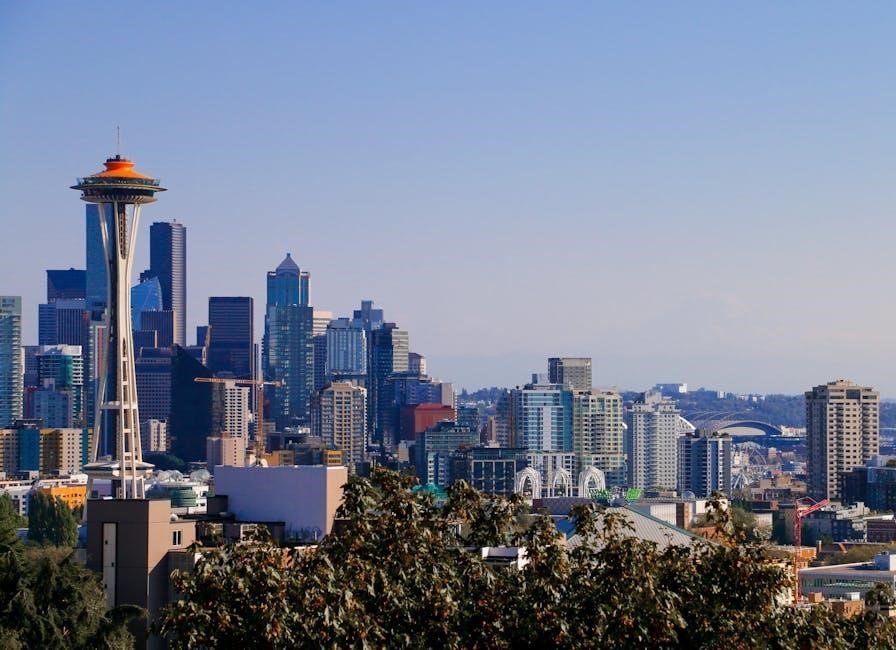
Recycling Contaminants to Avoid
Avoid contaminants like plastic bags, food residue, and broken glass, as they ruin recyclables. Keep materials loose, clean, and free of liquids to ensure proper processing.
6.1 Common Items That Cannot Be Recycled
Certain items cannot be recycled in Washington County due to contamination risks or processing limitations. Plastic bags, wraps, and packaging materials are not accepted, as they jam sorting equipment. Food-soiled paper, broken glass, and ceramics are also ineligible. Textiles, liquids, and hazardous waste must be disposed of separately. These items can ruin entire batches of recyclables, so proper separation is crucial. Residents are encouraged to check the county’s recycling guide for specific restrictions and explore alternative disposal methods for non-recyclable items. Keeping these contaminants out of recycling bins helps maintain the efficiency and effectiveness of local recycling programs.
6.2 Consequences of Contaminated Recycling
Contaminated recycling can lead to significant issues, including rejected materials sent to landfills and increased processing costs. When non-recyclable items are mixed with recyclables, they damage equipment and disrupt operations. This contamination often results in higher fees for taxpayers and reduced efficiency in recycling programs. Additionally, contaminated materials can harm the environment by increasing landfill waste and decreasing the quality of recyclable materials. To avoid these consequences, residents must carefully follow guidelines and ensure only acceptable items are placed in recycling bins. Proper practices help maintain effective recycling systems and contribute to a sustainable future for Washington County.
Food Scraps and Composting
Washington County offers a food scraps recycling program to divert organic waste from landfills. Residents can recycle items like fruit peels, eggshells, and coffee grounds, reducing waste and supporting sustainable practices.
7.1 Food Scraps Recycling Program
Washington County’s Food Scraps Recycling Program allows residents to recycle organic waste, including fruit and vegetable peels, eggshells, and coffee grounds. This initiative aims to reduce landfill waste and promote sustainability. Participants receive compostable bags for collection, and the scraps are processed into nutrient-rich compost. The program is part of a partnership with Ramsey County, expanding curbside pickup for food scraps. By diverting organic materials, the community reduces greenhouse gas emissions and supports eco-friendly practices. Residents are encouraged to separate food waste from trash and use provided containers for proper collection. Visit the Washington County Recycling Guide for detailed participation guidelines and eligibility.
7.2 Home Composting Tips
Home composting is a simple way to reduce waste and create nutrient-rich soil for your garden. Start by selecting a suitable location for your compost bin, ensuring good airflow and accessibility. Mix green materials (like food scraps and grass clippings) with brown materials (such as dried leaves and shredded paper). Avoid adding meat, dairy, and oily foods to prevent odors and pests. Keep the pile moist but not soggy, turning it occasionally to speed up decomposition. Washington County’s recycling guide offers detailed tips for maintaining a healthy compost pile and troubleshooting common issues. Visit their website for a step-by-step composting guide.
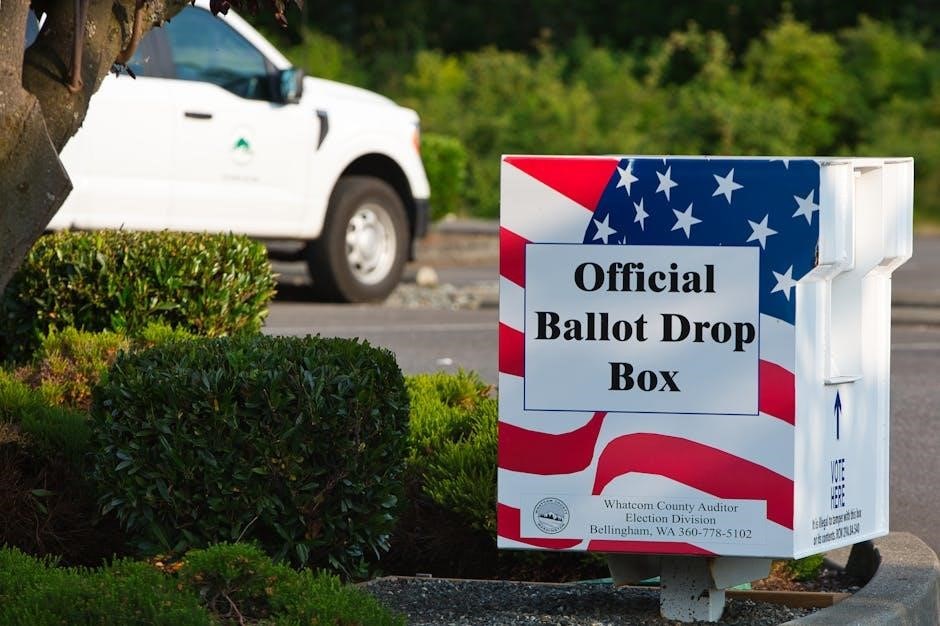
Hazardous Waste Disposal
Hazardous waste, like batteries and electronics, requires special handling to protect the environment. Washington County offers designated drop-off locations for safe disposal. Check the county’s guide for details.
8.1 Items Classified as Hazardous Waste
Hazardous waste includes materials like batteries, electronics, antifreeze, motor oil, and chemicals. These items contain toxic substances that can harm the environment if not disposed of properly. Medications, fluorescent bulbs, and aerosol cans also fall under this category. Proper handling is essential to prevent contamination and environmental damage. These items should not be placed in curbside recycling or regular trash. Instead, they require special collection events or designated drop-off locations. Washington County provides guidelines to ensure safe disposal, protecting both public health and the environment. Always check local resources for specific instructions on managing hazardous materials responsibly.
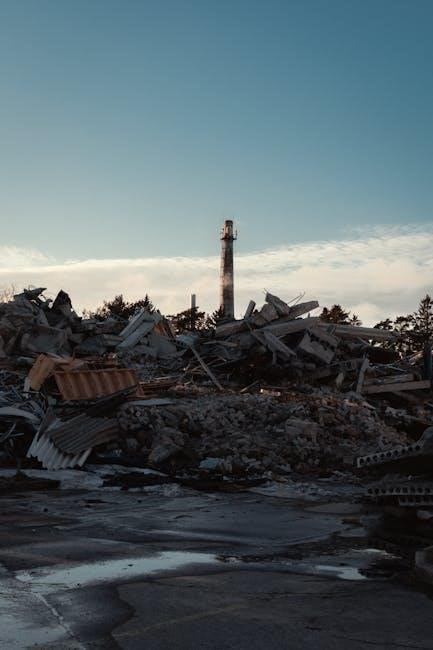
8.2 Safe Disposal Methods for Hazardous Materials
Safe disposal of hazardous materials requires careful planning and adherence to local guidelines. Residents should utilize designated drop-off locations or special collection events for items like batteries, electronics, and chemicals. Never dispose of hazardous waste in curbside recycling or regular trash. Prepare materials by keeping them in original containers, tightly sealed, and sorted by type. Check Washington County’s resource directory for specific instructions and event schedules. Proper disposal protects the environment, public health, and ensures compliance with regulations. Always verify acceptable materials and procedures before visiting a facility to ensure safe and efficient hazardous waste management.

Electronics and Battery Recycling
Electronics and batteries require special handling due to hazardous materials. Washington County offers e-waste recycling programs and designated drop-off locations for safe disposal. Check the county’s website for details.
9.1 E-Waste Recycling Options
Washington County provides convenient e-waste recycling options to ensure responsible disposal of electronics. Residents can utilize permanent drop-off locations or participate in special collection events. Accepted items include computers, phones, and small electronics. Proper recycling prevents hazardous materials from harming the environment. Visit the county’s website for a full list of accepted materials and location details. This service helps conserve resources and supports a sustainable future for the community.
9.2 Proper Disposal of Batteries
Proper disposal of batteries is crucial to prevent environmental harm. Washington County residents can recycle household batteries at designated drop-off locations or special collection events. Accepted types include alkaline, nickel-cadmium (Ni-Cd), and lithium-ion batteries. Residents are advised to tape battery terminals to prevent fires and keep them in closed containers. Automotive batteries are also accepted at specific facilities. Check the county’s recycling guide for detailed instructions and drop-off sites. Proper disposal ensures hazardous materials are safely managed, protecting the environment and public health. Participating in responsible battery recycling contributes to a more sustainable community.
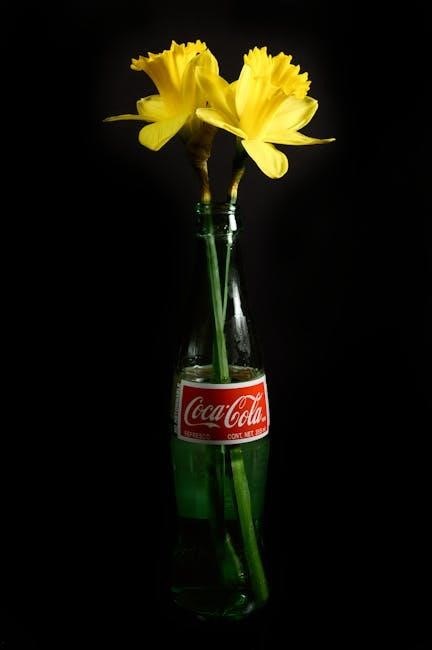
Community Involvement and Education
Washington County encourages residents to participate in recycling through educational workshops and community events. These initiatives promote awareness and foster a culture of sustainability.
- Attend local recycling workshops to learn best practices.
- Utilize educational resources to understand proper recycling methods.
- Engage with community programs to support environmental conservation.
10.1 Local Recycling Workshops and Events
Washington County hosts various recycling workshops and events to educate residents on proper recycling practices. These events include hands-on demonstrations, Q&A sessions, and interactive learning opportunities. Topics range from curbside recycling tips to composting and hazardous waste disposal. Collaborating with local organizations, the county ensures accessible and engaging programs for all residents. For instance, workshops on food scraps recycling and home composting are popular, offering practical advice for reducing waste. Residents can also explore community fairs and environmental expos that highlight recycling initiatives. These events foster a sense of community while promoting sustainability. Stay updated by visiting the county’s website or contacting the recycling department for event schedules.
10.2 Educational Resources for Residents
Washington County provides a variety of educational resources to help residents make informed recycling decisions. The county’s website offers a detailed recycling guide, downloadable brochures, and interactive tools like the “What to Recycle and Where?” directory. Residents can access step-by-step guides for preparing materials, sorting tips, and drop-off location maps. Additionally, educational workshops and webinars are regularly available, covering topics from composting to hazardous waste disposal. For personalized assistance, residents can contact the recycling department via email at recycleco.washington.or.us or call 503-846-3605. These resources empower residents to recycle effectively and contribute to a sustainable community.
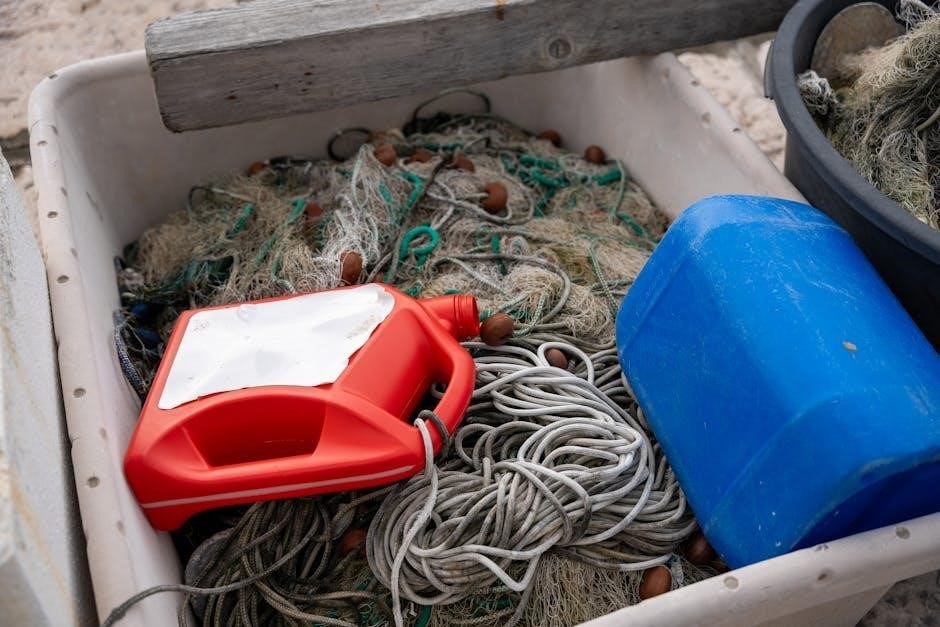
Tools and Resources for Residents
Washington County provides online recycling guides, interactive tools like “What to Recycle and Where?” and contact information for assistance, empowering residents to recycle efficiently.
11.1 Online Recycling Guides and Tools
Washington County offers an array of online resources to simplify recycling. The What to Recycle and Where? tool allows residents to search specific items for proper disposal methods. Additionally, the county provides downloadable recycling guides, such as the Single Family Recycling Guide and Apartment Recycling Guide, to help residents understand acceptable materials. Interactive tools enable users to enter their address for drop-off locations and collection schedules. These resources aim to educate and empower residents to recycle correctly, reducing contamination and promoting sustainability. Regular updates ensure the information stays current, assisting residents in making informed decisions about waste management.

11.2 Contact Information for Recycling Services
For assistance with recycling services in Washington County, residents can contact the recycling department via email at recycleco.washington.or.us or by calling 503-846-3605. Office hours are typically Monday through Friday, 8:00 AM to 5:00 PM. The recycling team is available to address questions about collection schedules, acceptable materials, and drop-off locations. Residents can also reach out for help with using online tools or resolving issues related to recycling services. This direct line of communication ensures residents receive accurate and timely support, making recycling easier and more accessible for the community.



0 Comments